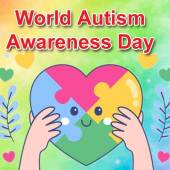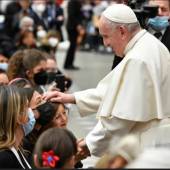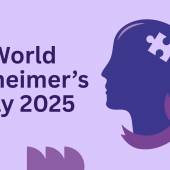Promotion of inclusion for people with Down syndrome

World Down Syndrome Day is on March 21.
In 2011, the United Nations General Assembly declared that March 21 is to be celebrated as the “World Down Syndrome Day” (WDSD).
The importance of the day is that activities and events marking the WDSD would “raise public awareness and create a single global voice advocating for the rights, inclusion and wellbeing of people with Down syndrome.”
Government in each country, national and international organizations, institutions, civil society, including non-governmental organizations and the private sector, and people at large are called upon to observe the day fittingly.
What is Down syndrome (or Trisomy 21)? It “is a naturally occurring chromosomal arrangement that has always been a part of the human condition, being universally present across racial, gender or socioeconomic lines in approximately 1 in 800 live births, although there is considerable variation worldwide. Down syndrome usually causes varying degrees of intellectual and physical disability and associated medical issue.”
“Down syndrome occurs when an individual has an extra partial (or whole) copy of chromosome 21.” Medical experts say it is not clear why the syndrome happens, though it has been part of the human condition around the world.
In general, Down syndrome causes “variable effects on learning styles, physical characteristics and health.” It is recommended that people with Down syndrome have “adequate access to health care, to early intervention programmes, and inclusive education, as well as appropriate research, are vital to the growth and development of the individual.”
Available data indicate that every year, about 3,000 to 5,000 children are born with this chromosome disorder.
“The quality of life of people with Down syndrome can be improved by meeting their health care needs, including regular check-ups with health professionals to monitor the mental and physical condition and to provide timely intervention be it physiotherapy, occupational therapy, speech therapy, counseling or special education,” says the United Nations.
They can “achieve optimal quality of life through parental care and support, medical guidance, and community-based support systems such as inclusive education at all levels. This facilitates their participation in mainstream society and the fulfillment of their potential.”
Undoubtedly, most of us might have seen people with Down syndrome or have any of our relatives in family or community. They do not need our pity; rather we need to have better understanding and empathy towards them. We make sustained efforts for their education, empowerment and inclusion into society, as they are part of us. And above all, we promote their rights so that they may have the opportunity to grow to their full potential. As a result, they too contribute their share for the common good.
One key concept of the campaign to promote WDSD is collective inclusion. It is a golden opportunity for all to connect with the people with Down syndrome community worldwide. How? All can share ideas, experiences and knowledge related to Down syndrome. All need to empower one another to promote equal rights for persons with Down syndrome. Besides, each contributes resources, if possible and extends support to the key stakeholders to bring about positive change in society.
Actively promoting the inclusion of persons with Down syndrome and disabilities also paves a way for everyone’s inclusion in society for the good of all.
Radio Veritas Asia (RVA), a media platform of the Catholic Church, aims to share Christ. RVA started in 1969 as a continental Catholic radio station to serve Asian countries in their respective local language, thus earning the tag “the Voice of Asian Christianity.” Responding to the emerging context, RVA embraced media platforms to connect with the global Asian audience via its 21 language websites and various social media platforms.














